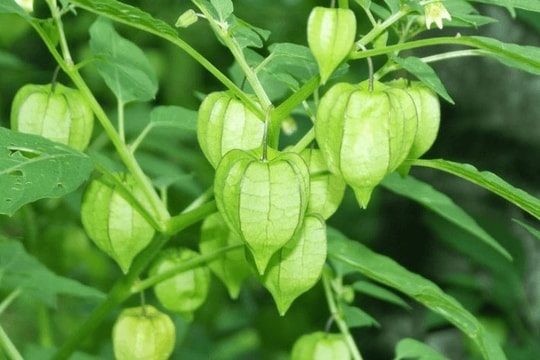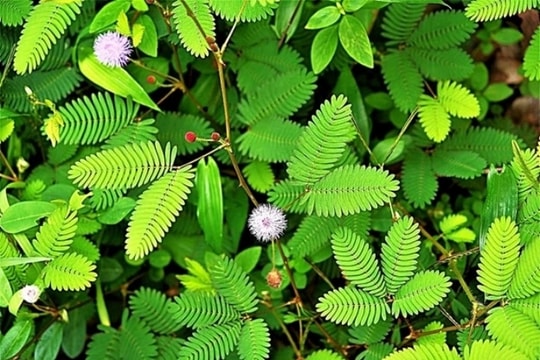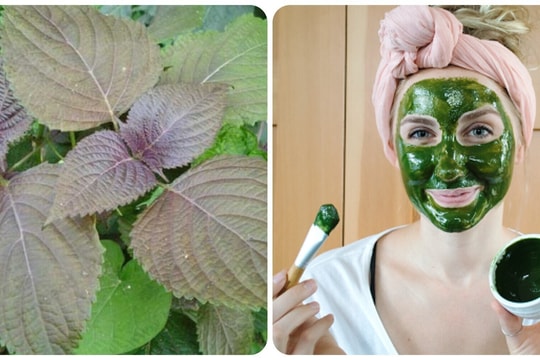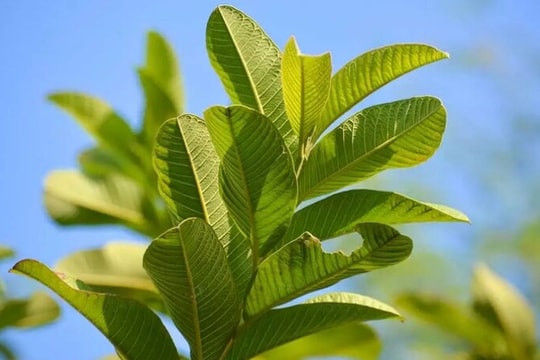Should I drink ginseng leaf water regularly?
Many people still have the habit of boiling water from ginseng leaves to drink every day, so should we drink water from ginseng leaves every day?
Health benefits of ginseng leaves
An article by Dr. Dang Hanh - Faculty of Traditional Medicine, Hanoi Medical University, said that in addition to being used in salads and raw vegetables, Polyscias fruticosa leaves are also a valuable medicinal herb in Oriental medicine. Polyscias fruticosa is used as an ornamental plant and as a medicine in traditional medicine.
Polyscias fruticosa (L.) Harms, the scientific name of Polyscias fruticosa, is a plant species belonging to the Araliaceae family, used as medicine in many countries around the world and brings about wonderful treatment effects.
Polyscias fruticosa contains saponins, alkaloids, glycosides, polyphenols, flavonoids, tannins, vitamins (C, B1, B2 and B6) and amino acids. Among them, saponins are considered the main components of P. fruticosa. These compounds are essential for the body's metabolism, especially the anti-oxidation process in tissues.
Studies show that ginseng has many effects such as: Strengthening the body's immune system; improving male fertility; anti-fatigue, nourishing, increasing appetite, good sleep; increasing labor capacity, weight gain; detoxifying, cooling the liver.
In particular, recently scientists have proven that ginseng has anti-depressant, anti-stress, memory-improving, antioxidant, hypoglycemic, liver-protecting, lipid-lowering, antifungal and antibacterial effects.
In addition, Polyscias fruticosa leaves are also used to support the treatment of neurodegenerative diseases such as Parkinson's disease and Alzheimer's disease because they improve symptoms of tremors, loss of balance, insomnia, memory loss, nervous tension, and neurasthenia.
Polyscias fruticosa leaves help prevent memory loss and strengthen the nervous system because they contain many B vitamins, especially vitamin B1.
Scientists have researched and shown that Polyscias fruticosa leaves increase the amplitude of brain potential and increase the receptive ability of cerebral cortex nerve cells.
Parkinson's disease is one of the most common neurodegenerative diseases, characterized by loss of dopaminergic neurons. The resulting decrease in dopamine neurotransmitter in the striatum leads to a number of motor deficits and a number of non-motor symptoms.
Although the cause of the disease is still unknown, previous studies have suggested that the cause is related to many factors such as genetics, environmental factors and aging. Among them, factors leading to oxidative stress may play a role in the development and progression of the disease. Chemical components in ginseng have the effect of supporting the treatment of Parkinson's disease.
Should I drink ginseng leaf water every day?
According to Dr. Dang Hanh, ginseng leaf water has many health benefits. However, you should not overuse ginseng leaf water every day instead of filtered water because it can cause unwanted effects on the body.
The leaves of the ginseng plant contain saponin which can cause fatigue, nausea and dizziness. Therefore, you should only drink ginseng leaf water in moderation, for a certain period of time and consult your doctor if you use it daily.
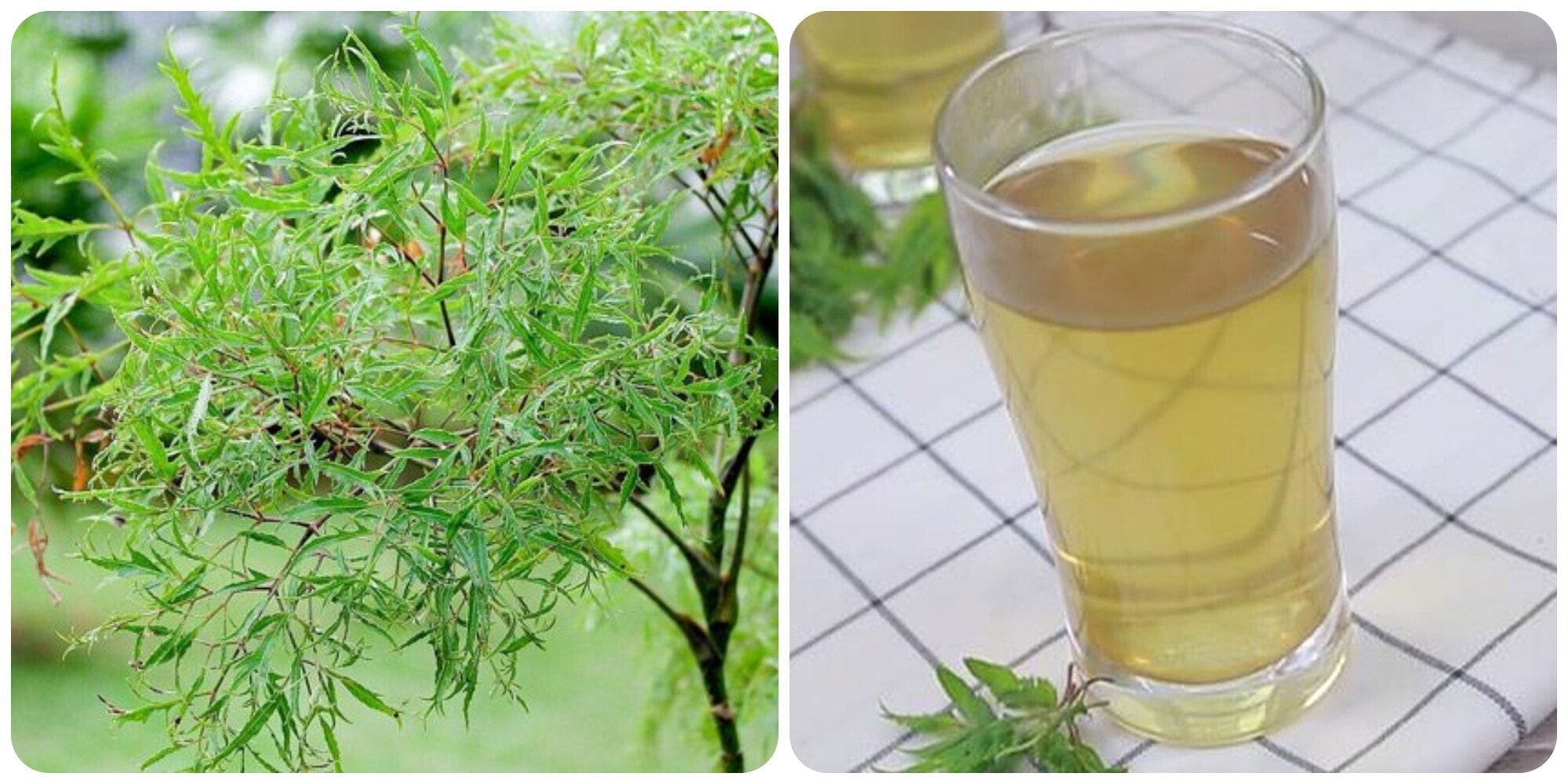
In addition, fresh ginseng leaves when just picked still have a lot of sap, especially the amount of sapnopin in fresh leaves is very high, if consumed in large amounts can cause diarrhea, digestive disorders in people with irritable bowel syndrome.
When dried, sapnopin will be significantly reduced, thereby not causing some of the above side effects.
In addition, when dried to boil water, make tea, you will feel the aroma, gentle flavor. Therefore, drinking dried ginseng leaves will be very suitable for those who do not like the pungent, strong smell of fresh leaves.
Things to note when drinking ginseng water
The article on the Medlatec General Hospital website has medical consultation from BSCKI. Duong Ngoc Van said that when applying any medicine from ginseng leaves, you need to pay attention:
- In the leaves of the Polyscias fruticosa, there are many saponins, so if you abuse it too much, you can easily encounter some side effects such as dizziness, lightheadedness, discomfort, fatigue, etc. Therefore, depending on each specific case, consider the appropriate dosage, do not drink for a long time.
- Children should not drink water from ginseng leaves but should only use it externally because their organ systems are not fully developed. If they abuse drinking water from ginseng leaves, it can have a negative impact on their general condition as well as their cardiovascular system.
- Although natural medicine is less toxic, when used in large doses there is still a risk of poisoning, especially in the lungs, liver, stomach, heart, and intestines.
Pregnant women in the first 3 months should not drink ginseng leaves to avoid affecting the fetus.
In general, ginseng leaves are natural medicines, so once you know what the effects of ginseng leaves are and decide to use them, you need to be persistent and do it regularly, do not be impatient because the effects it brings cannot be as fast as using Western medicine. All medicines from ginseng leaves need time to penetrate and develop their effects to be effective.
Along with using Polyscias fruticosa leaves to support health protection, it is also necessary to have a scientific lifestyle and diet. This combination will help the treatment process go smoothly and avoid the risk of serious disease progression./.

